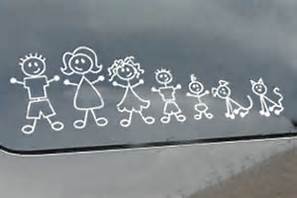
Google the words “family worship” and you can discover some great resources that describe what family worship is and the importance (and even requirement) of having family worship. For example, a Ligonier article entitled “Family Worship 101” by William Boekenstein defines family worship as the regular use of Scripture, song, and prayer by a family unit, guided by the head of the household.
But should family worship take the place of worship as family? When I say “worship as family,” I mean families attending their weekly congregational worship together. The answer to this question is no! Family worship at home should not take the place of family worship at church or vice versa. Both churches and families should partner together in making disciples of the next generation (Deut 6:6-7, Ps 78:5-7, Acts 2:46; 5:42, Ephesians 6:4, 2 Tim 3:15). This is the way it always has been in the Bible. Family discipleship should take place in the church and in the home. Simply put, families should have a time of worship together at home and in the church. Healthy churches help make healthy homes and healthy homes help make healthy churches!
Fathers or single-parent mothers (as head of the household), let’s be honest. Family worship is often the exception and not the rule. Most families worship at church but family worship at home is found wanting. Donald Whitney has an excerpt in his book, Family Worship which says, “I am persuaded from my own ministry experience in hundreds of churches that so little family worship regularly exists in Christian homes today, that even in our best churches, most of our best men do not even pray with their wives (and children if they have them) much less lead them in ten minutes or so of worship as family . . . God deserves to be worshiped daily in our homes by our families.”
Barna Research echoes Whitney, “Eighty-five percent of parents with children under age 13 believe they have primary responsibility for teaching their children about religious beliefs and spiritual matters. However, a majority of parents don’t spend any time during a typical week discussing religious matters or studying religious materials with their children . . . Parents generally rely upon their church to do all of the religious training their children will receive.”
This atrocious trend of families relying on the church to meet all of its spiritual needs must come to an end. Equally important, ministry leaders must stop trying to do all of the family’s work. Ministry leaders, please equip your families with resources for leading worship at home. Families, as you begin worshipping at home, you will notice that worship at church becomes that much sweeter! And in-turn ministry leader, you will notice your burdens at church becoming lighter (Matt 11:28-30).
 Buzzwords come and go but the buzzword being heard in the church today is the word legacy. Legacy is an important word in next generation ministry (NGM) because of the command for parents to hand down the faith that they have been entrusted with to their children and to their children’s children (Deut 6:1–9; 2 Tim 1:5, 14). The faith must be passed onto the next generation if the church is going to thrive. Churches and families partner together in the process of passing down the faith to the generations that succeed them. The by-product of parents and leaders successfully handing off the baton of faith is the creation or continuance of a spiritual legacy. It is more important for next generation parents and leaders to possess a spiritual legacy than it is to be a world-renowned legend.
Buzzwords come and go but the buzzword being heard in the church today is the word legacy. Legacy is an important word in next generation ministry (NGM) because of the command for parents to hand down the faith that they have been entrusted with to their children and to their children’s children (Deut 6:1–9; 2 Tim 1:5, 14). The faith must be passed onto the next generation if the church is going to thrive. Churches and families partner together in the process of passing down the faith to the generations that succeed them. The by-product of parents and leaders successfully handing off the baton of faith is the creation or continuance of a spiritual legacy. It is more important for next generation parents and leaders to possess a spiritual legacy than it is to be a world-renowned legend.